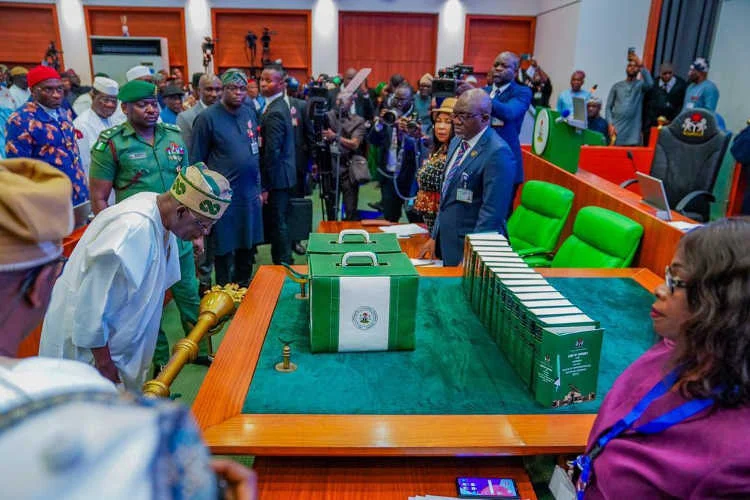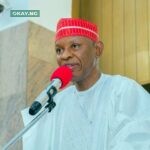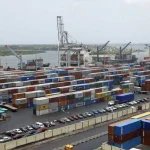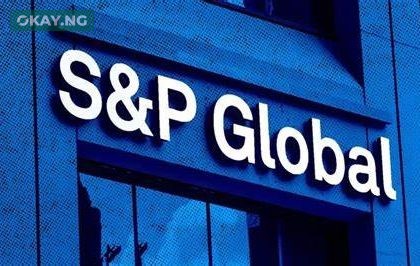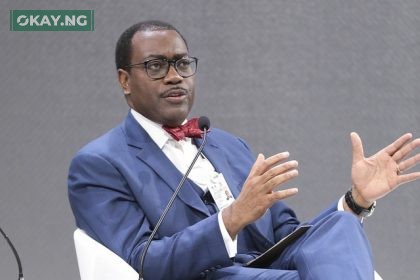The Nigerian Association of Chambers of Commerce, Industries, Mines, and Agriculture (NACCIMA) has sounded the alarm bells, warning Nigeria of a darkening economic horizon in 2025. This grim assessment stems from a confluence of factors, chief among them a rapidly expanding budget deficit and a perceived lack of meaningful support for the struggling private sector.
“We are already grappling with a staggering budget deficit, approaching a colossal N13 trillion,” lamented NACCIMA President Dele Oye during an interview on Arise News’ “This Morning Show.” “And just yesterday, this figure was further inflated by an additional N4.5 trillion, casting a long shadow over the nation’s fiscal sustainability.”
While acknowledging the government’s recent pivot towards channelling funds towards the Bank of Agriculture and the Bank of Industry – a move NACCIMA has long advocated for – Oye emphasised the critical need for substantial and sustained funding to ensure these institutions can provide the private sector with access to affordable, single-digit interest loans.
“This is a lifeline the private sector desperately needs,” he stressed. “However, the devil lies in the details. We must ensure these funds are effectively utilised to stimulate genuine economic growth and empower businesses.”
Oye, who also serves as Chairman of the Organised Private Sector of Nigeria (OPSN), pointed out that the 2024 budget demonstrated a concerning bias towards the public sector, leading to a surge in government spending while leaving businesses starved for financial support. However, he cautiously welcomed what appears to be a nascent shift in government policy, recognising the potential for a more conducive environment for private sector growth.
Read Also: Nigerian Businesses Remain Confident Despite Slight Growth Moderation
“We are witnessing a discernible effort by the government to address the needs of the private sector, particularly the productive sector,” he observed. “If these funds truly reach their intended destination, we can expect a significant boost in productivity.”
Oye unequivocally rejected the notion that increased taxation and punitive measures are the answer to Nigeria’s economic woes, particularly the unrelenting grip of inflation. “Inflation is, in essence, the most insidious form of taxation impacting every citizen,” he asserted. “The path to sustainable economic recovery lies in fostering an environment that encourages and facilitates investment. We must make Nigeria a more competitive destination for businesses, a beacon of economic opportunity that outshines our neighbours.”
He further emphasised that businesses cannot indefinitely shoulder the burden of escalating taxes without the means to absorb them. “Taxation without the capacity to pay is a recipe for economic disaster,” he warned. “True economic growth hinges on policies that enhance productivity – policies that prioritise reasonable regulations, access to affordable financing, and meaningful stakeholder engagement. When businesses thrive, the government ultimately benefits.”
To alleviate the mounting economic pressure on businesses, Oye urged the Central Bank of Nigeria (CBN) to take decisive action by lowering the Monetary Policy Rate (MPR) and imposing a cap on public sector borrowing. “By reducing public sector debt, we can lower inter-bank rates and subsequently bring down interest rates, a move that would be further facilitated by supportive measures from the CBN,” he explained.
Furthermore, Oye called for the establishment of a truly competitive free trade zone, drawing a stark contrast with the more business-friendly environment enjoyed by neighbouring countries like Ghana. He also underscored the paramount importance of engaging all stakeholders in meaningful dialogue before implementing any major economic policy changes.
“It is unacceptable to spring major policy shifts on the business community without adequate consultation,” he asserted. “The recent announcement of a 4% FOB (Freight on Board) levy on goods entering Nigeria, coming on the heels of recent reforms, is a case in point. This move threatens to stifle the recovery of struggling industries. We urge the government to either suspend this levy entirely or at the very least exempt essential goods and raw materials.”
Oye expressed deep concern over the glaring imbalance between Nigeria’s booming banking sector and its struggling industrial base. “How can banks report record profits while industries teeter on the brink of collapse?” he questioned. “This stark disparity demands a serious inquiry. The answer, in large part, lies in the exorbitant interest rates charged by banks. And who are the biggest borrowers? The government itself. A significant portion of the 2024 budget is earmarked for interest payments – a deeply concerning trend.”
Implication
The economic challenges facing Nigerian businesses have a profound impact on everyday lives. Rising prices erode purchasing power, forcing families to make difficult choices about essential goods and services. Job losses and reduced incomes further exacerbate these hardships, leaving many struggling to make ends meet.
The present administration has been all out on streamlining taxation for efficient revenue collection and management; meanwhile, the CBN continues to maintain its orthodox inflation measures. While theoretical solutions to these measures may exist, the stark reality remains that businesses receive these burdens and, to stay afloat, must pass them on to the end user, whose purchasing power several economic headwinds have greatly reduced.
The government’s failure to adequately support the private sector not only threatens the economic well-being of businesses but also jeopardises the livelihoods of millions of Nigerians who depend on these businesses for employment and income. This ultimately undermines social stability and hinders the country’s overall progress.


